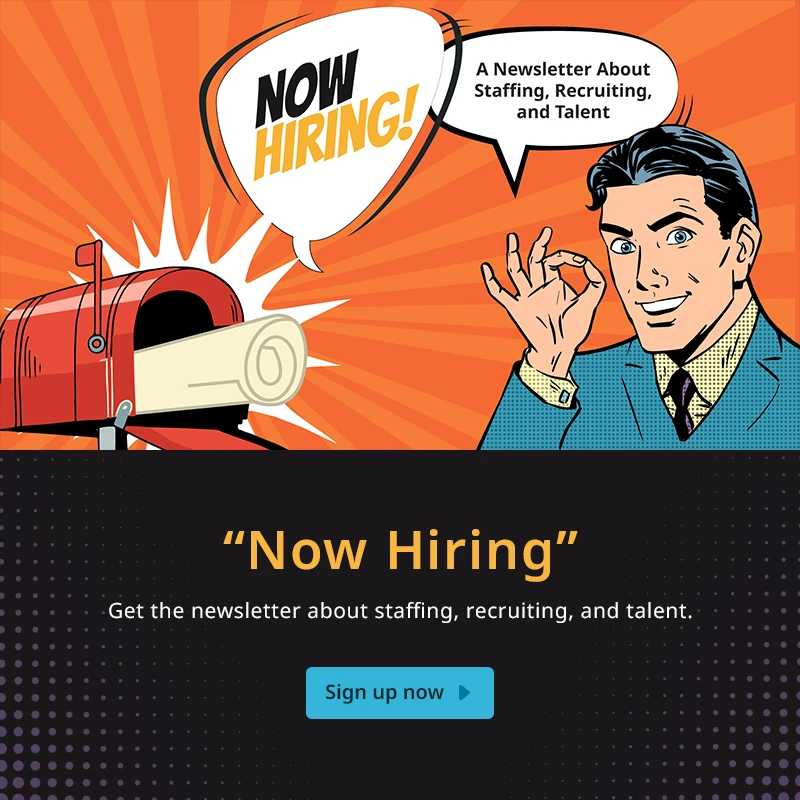Let’s face it, whether you like it or not, millennials are taking over today’s workforce. By 2025, it is estimated that 75% of the global workforce will be millennials. In other words, if you’re not paying attention to this generation, or haven’t started targeting them through your recruiting methods, you’re already behind everyone else.
Regardless of where you are in your strategy of recruiting millennials, we’ve got you covered. Below are five tips on how you can not only grab the attention of millennials, but also get them to sign the dotted line and get them to join your team.
How do we know this list is legitimate? Well, I’m actually a millennial myself, and after many conversations and real-world experiences, I’ve been able to get a pretty good grasp on what my millennial colleagues and I want.
1. Provide a Sense of Purpose
While millennials absolutely want something that pays the bills (tuition, rent, dinner…), they also want something that’s much, much bigger. They want a purpose. Millennials have a very strong sense of pride when it comes to “what” they actually do. Many want to be able to clearly answer the question, “what do you do for a living?”, with a smile on their faces, and the sense of satisfaction that they are actually putting their hours in for a good cause.
Many times, we can’t really answer this question, and if we do, there’s a chance there isn’t a smile on our faces. The solution? Be upfront about the expectations for the position, as well as the overall purpose the position has not only internally, but also externally. By clearly defining this purpose, you’re allowing them to answer this “what” question much easier, and if they still have a smile on their face then you’re one step closer to getting them on your team.
2. What’s Next?
Millennials are known for “jumping around” a bit when it comes to their professional careers. In most situations, millennials tend to move to new companies after a few years. I actually made the jump myself, and have noticed a large handful of my friends have too. When digging deeper into “why” my friends and I made this jump, it became evident that it’s directly associated with our level of understanding of what’s next for our future careers.
When speaking with millennials, it’s important to be clear about the position they’re potentially going to be hired for, but also to look at the long-term timeline for their future within the company. If millennials can’t see a clear growth plan on where they are today, chances are they’ll create their own future somewhere else. Making this growth plan very clear early on not only motivates potential candidates, but also prepares them to stick around for a while.
3. Keep it Fresh
Regardless of who you are, when you accept a new position, you want to physically see that the company is ready for the future. This expands outside of just annual goals, strategies, and future plans. We’re talking about the actual office environment and the tools being used on a day-to-day basis. If millennials see outdated technology, they’re going to assume the company is outdated, and in a way…they’re right.
They want to see the constant evolution of a company as time goes on, and as technology advances. It’s almost like they want to work in a “new” company every few years. By re-creating a new office space, or constantly updating the ways of doing work in new, advanced ways, it’s essentially a never-ending adventure of transformation. They won’t have a purpose or desire to look for a new company, simply because their company is already constantly growing and changing itself.
By clearly sharing the fact that the company is constantly evolving and “staying fresh”, you’re showing the candidate that they’re not going to be left behind in the past. It’s confirming the fact that the amount of time they invest in the position is worth it in the long run.
4. Be Social
Millennials are the early adopters of social media, and the first to truly embrace the many platforms as a main form of communication. As they grew up with social media, it quickly became a part of their lives, and it generated a bit of a Fear of Missing Out (FOMO) behavior, as their friends are constantly sharing the many exciting things happening in their lives 24/7. If your company is on social, there’s a good chance that your millennial employees will share some of the great experiences they have to their social networks, which not only promotes your brand image, but also opens you up to even more potential millennial candidates.
So how exactly does being on social media help you recruit millennials? Well, to make it easy on you, chances are you wouldn’t even be having a conversation with a millennial in the first place if you weren’t on social media. Chances are even higher that the millennial looked the company up via a social media platform before you spoke with them too. If they didn’t have any luck finding the company on social media, then you won’t have much luck hiring them.
Sharing with them that the company is active on social media not only gives them a “sneak peek” of what it’s like to work for the company, but it also educates them on what the company actually does.
5. Walk the Talk
It’s important to be up front and express what your company is all about, but what’s really important is if your company “walks the talk.” In other words, are you the only one saying these positive things about your company? One of the first things millennials do before applying for a position is to jump directly on a review site (like Glassdoor), to find a quick look at the overall level of employee satisfaction. If your rating is low, chances are most millennials won’t even bother applying.
When it comes down to it, millennials are big fans of user-generated content. A recent study shared that millennials actually trust user-generated content (peer reviews, etc.) 50% more than traditional media. With that being said, it’s critically important to manage your reputation on the many different reviews sites out there, because at some point within the interviewing process, millennials will definitely stumble upon at least one of them.
Interested in learning more about millennials and how they’re changing the recruiting game? Click here to learn more about how companies are attracting fresh talent.







